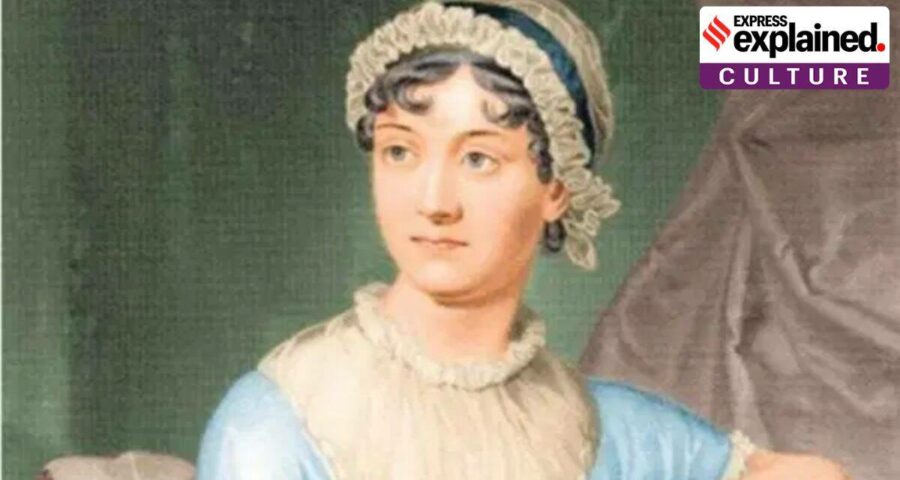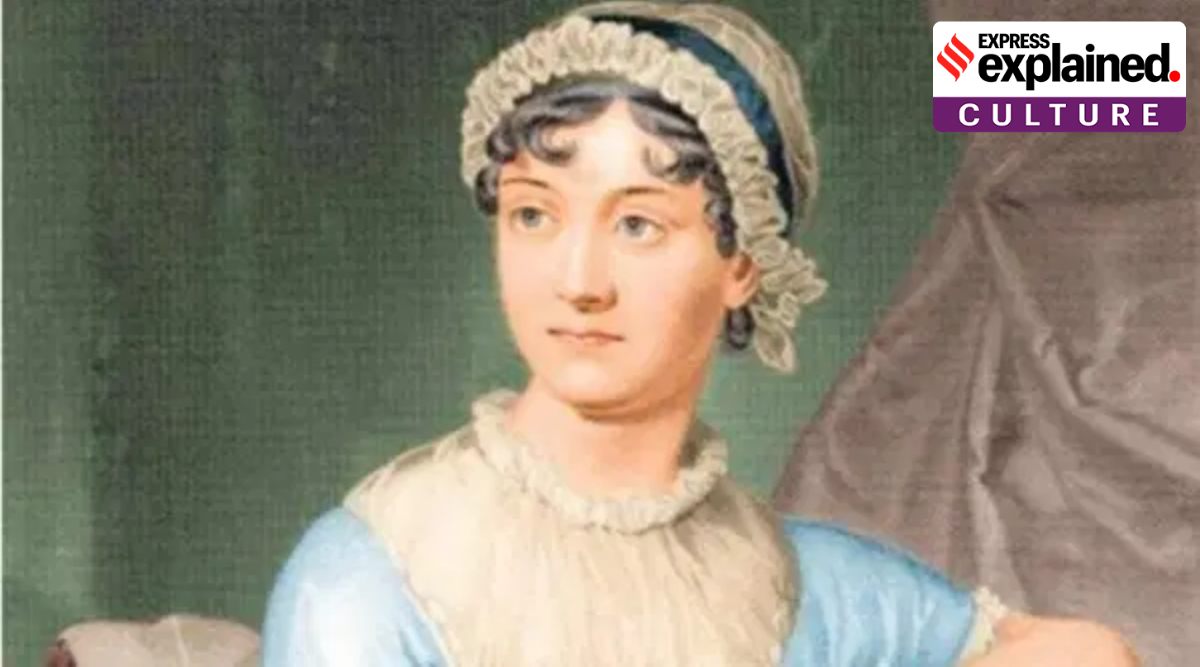The Jane Austen museum's plans to re-examine the connections of the author's family with the slave trade led to quite a storm in a teacup, with plenty of pride and prejudice on display.
Jane Austen’s House, the museum dedicated to the author in UK’s Chawton, Hampshire, recently had to issue a rather unusual clarification: “We would like to offer reassurance that we will not, and have never had any intention to, interrogate Jane Austen, her characters or her readers for drinking tea.”
The museum’s statement came after its plans to refresh some of its displays, and to include more information on the “Empire and Regency Colonial context of both Austen’s family and her work”, led to an outcry over “woke madness” and “cancel culture” allegedly out to claim Austen.
What did the museum propose, and why did it lead to such outrage?
Tea, slavery and the Austen museum
The Jane Austen House museum is housed in a cottage Austen had lived in for a part of her life, and in which she wrote some of her books.
The genesis of the outrage is over the museum’s plans to re-examine the Austen family’s connection with the slave trade, as first reported by The Telegraph.
Lizzie Dunford, director of the museum, was quoted by The Telegraph as saying, “The slave trade and the consequences of Regency-era Colonialism touched every family of means during the period. Jane Austen’s family were no exception. As purchasers of tea, sugar and cotton they were consumers of the products of the trade, and did also have closer links via family and friends. At Jane Austen’s House we are in the process of reviewing and updating all of our interpretation, including plans to explore the Empire and Regency Colonial context of both Austen’s family and her work.”
This soon led to an outcry on social media over “new-fangled wokeism” allegedly declaring both tea-drinkers and Austen racists. Some newspapers shared the outrage, with Express UK carrying the story with the headline ‘‘Woke madness’ Jane Austen faces ‘historical investigation’ over father’s slave trade link’, and the Daily Mail terming it “a revisionist attack”.
So what are Austen’s links with the slave trade?
Jane Austen’s father George Austen was the trustee of an Antigua sugar plantation owned by his friend, James Nibbs. George’s children, however, never enjoyed any income from the plantation.
Apart from this, as Dunford said, every upper class family in Britain in that period consumed products that were fruits of slave labour, including tea and sugar.
Tea, or rather the social ritual of tea-drinking, features in several of Austen’s works. In her personal life, the author was quite fond of the beverage as well as the social rite that consuming it was, as her letters to her sister Cassandra show. However, Austen can in no way be accused of promoting the sale of tea and thus contributing to the propagation of slave labour – though featuring in several of her novels, tea is generally mentioned as a setting for interactions between characters; the author has rarely talked of the beverage itself.
In fact, Austen admired authors like Thomas Clarkson and William Cowper, who belonged to the abolitionist camp – those advocating the end of slavery.
And while Austen famously did not touch on political issues directly in her books, at least in two of her novels, characters express unfavourable views about slavery.
In Mansfield Park, Fanny Price tells Edmund Bertram that her uncle Sir Thomas Bertram, who owns an Antiguan estate, reacted with “dead silence” when she asked him “about the slave-trade”.
The views are more explicitly expressed in Emma, when Jane Fairfax, talking of the hiring of governesses, says, “There are places in town, offices, where inquiry would soon produce something – offices for the sale, not quite of human flesh, but of human intellect”, to which Mrs Elton replies with, “Oh! my dear, human flesh! You quite shock me; if you mean a fling at the slave trade, I assure you Mr. Suckling was always rather a friend to the abolition.”
Why the paranoia over ‘woke madness’?
Britain has recently seen several controversies over what some say is a distortion of history through the woke lens, specially in the wake of the Black Lives Matter movement. Others have said a closer examination of the less savoury parts of Britain’s history, such as its colonial past and its links to the slave trade, is necessary, and the protests are simply the discomfort of the privileged at losing absolute control of the narrative.
Only last month, UK’s Culture Secretary Oliver Dowden said museums in the country can’t let themselves be “pushed around by the zeitgeist of the day”, and that the “principal duty” of cultural institutions is to “preserve and conserve our heritage”.
In November 2020, the British Library apologised to the family of poet Ted Hughes after his name was included in a list of 300 figures with “evidence of connections to slavery, profits from slavery or from colonialism”, over an ancestor who lived several centuries ago and was not directly related to him.
In September 2020, British charity organisation National Trust faced threats of funding cuts after it released a report stating that many historical properties it manages have a colonial past and links to slavery.
Finally, what exactly is the Jane Austen museum doing
As part of the clarification issued by Jane Austen House, since the author lived in the times of slavery,they are “increasingly asked questions about this by our visitors and it is therefore appropriate that we share the information and research that already exists on her connections to slavery and its mention in her novels.”
According to the musuem, it has been “planning to refresh our displays and decoration at Jane Austen’s House for several years. The overarching aim of this long-term process is to bring Jane Austen’s brilliance and the extraordinary flourishing of creativity she experienced at the House to the heart of every visit. Since we are a museum of Jane Austen’s domestic and creative life, this interpretation will by its very nature include the Regency, Empire and Colonial contexts in which she grew up and lived and from which she drew inspiration for her works. This will be part of a layered and nuanced presentation which will be based on long established, peer reviewed academic research, alongside Jane Austen’s own words and our collection.”
Source: Read Full Article


